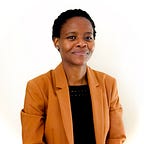Connections — Why access to energy and communications are fundamental to an appropriate COVID response
According to the United Nations Sustainable Development Goal 7, in ten years’ time, everyone is set to have access to affordable, reliable, sustainable, and modern energy. About 840 million people do not currently have access to electricity and 3 billion do not have access to clean fuels for cooking. Off-grid solutions such as solar lighting, Solar home systems, and mini-grids are reducing these numbers, but progress has been slow. This was before the Covid-19 situation.
As of March 2020, when the WHO announced that COVID 19 was officially a pandemic disease, several countries opted to introduce lockdown as a measure to reduce the rate at which the coronavirus spreads. This has meant that some companies have had to close production and countless households have either lost their income or had their income decreased. Households have had to reallocate their expenses and prioritise food and emergency supplies. The hardest-hit have been low-income and lower-middle-income households who benefit from the informal sector. The negative impacts of this have meant that the most vulnerable households, many of whom are served by mini-grids, solar home systems and use clean cookstoves are unable to pay for their energy.
Recently two studies were conducted by GOGLA on “Identifying options for supporting the Off-Grid sector during COVID-19 crisis” and Clean Cooking Alliance on “COVID-19 Impacts on Clean Cooking” to better understand how businesses and customers are coping during this pandemic. Both studies indicate that several businesses have been financially unable to continue with business and have since shut down operations — about 30% of clean cooking enterprises. In the SE4All study, SHS companies are expected to lose 27% and mini-grid companies 40% of their revenues on average due to the pandemic.
Although the future seems uncertain for many of these organisations and businesses, support is being provided and suggestions have been put forward to aid both the customers and the businesses to navigate this pandemic and ensure businesses stay afloat and customers continue to receive clean energy.
To ensure businesses can stay afloat, the following is being done:
· Negotiating with suppliers for potential payment extensions to improve cash flow;
· Financial and other resource support is being provided to businesses to ensure operational continuity.
In turn, this is allowing businesses to provide the following support to their customers:
· Providing energy services at low or no cost — for example BBOXX has introduced a crisis energy scheme — if customers pay for one-month energy up front, BBOXX will provide the customer with additional days of energy for free.
· Suspending bill payments — providing a grace period and not disconnecting households during the crisis — Redavia is offering free solar systems for six months to help businesses in Kenya and Ghana
· Government or donors subsidizing energy costs to ensure households are still able to pay — BBOXX’s customers in Togo receive a subsidy from government to spend on solar energy, allowing the customers to pay below market prices.
In addition, national governments are providing the following relief to their citizens:
· India is providing its customers with relief through the provision of free LPG for cooking for three months. This initiative by the Indian government is to mitigate the economic losses suffered by vulnerable households and to increase the use of clean fuels.
· Democratic Republic of Congo (DRC) is providing free electricity across the country for the next two months. The country has one of the lowest electrification rates in the world however and as such this relief will not benefit the millions without a connection.
· In Nigeria the government will provide free electricity to customers for two months and similarly in Ghana the government has committed to paying the electricity bills of low-income households for 3 months and households outside of this category will receive a 50% discount.
This is much-needed support to households that need the most assistance. However, a million households are still being left behind at a time when energy is needed for people to cook, communicate and power clinics. During these uncertain times, we ask funders to continue to provide funding for universal access to electricity and clean cooking. Now more than ever, we need to ensure that everyone has access to clean energy. While it is unclear how long this pandemic will last, access to reliable, clean and affordable energy at times like this is fundamental to keep people healthy, resilient, gainfully employed and updated. Energy access will also be integral to the post-coronavirus economic recovery.
At TFE Energy, using our Village Data Analytics (VIDA) tool we can assist donors, governments and private companies to identify areas that are particularly vulnerable and suitable for health centre electrification or mini-grids. A recent piece of work we conducted rapidly identified around 2,000 rural health facilities that are off-grid in Ethiopia, read the full report here.
The time is now for joined up thinking. How does energy access impact health response and reduce a community’s vulnerability? What cutting edge tools and new thinking can we apply in innovative ways to make sure that as a planet, we emerge from this crisis stronger, fairer, and ever more resilient. The countless herculean responses to the crises being undertaken at the community, grassroots level and at the highest echelons of government are evidence that when required we can achieve astounding things. If we have the will.
